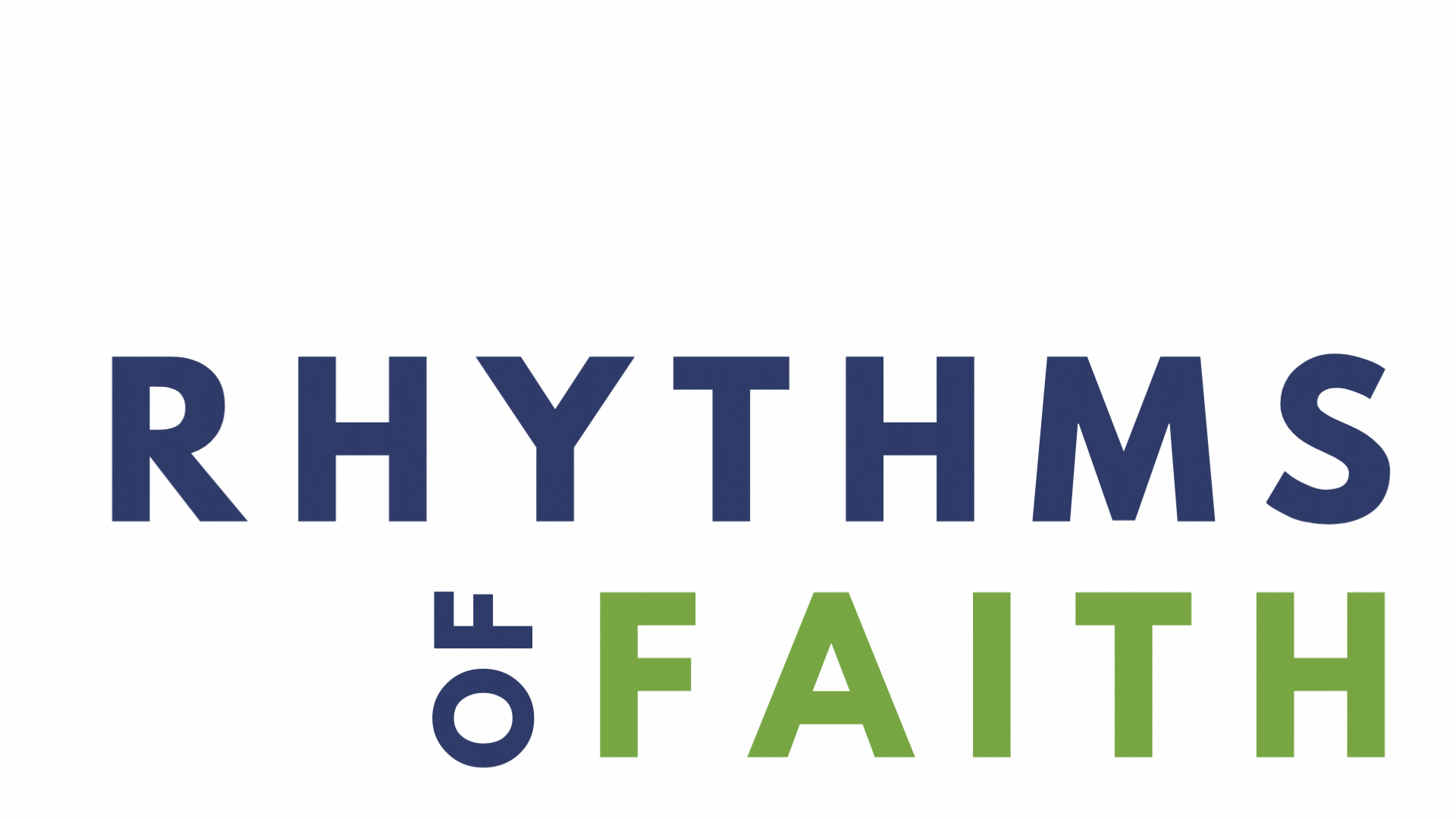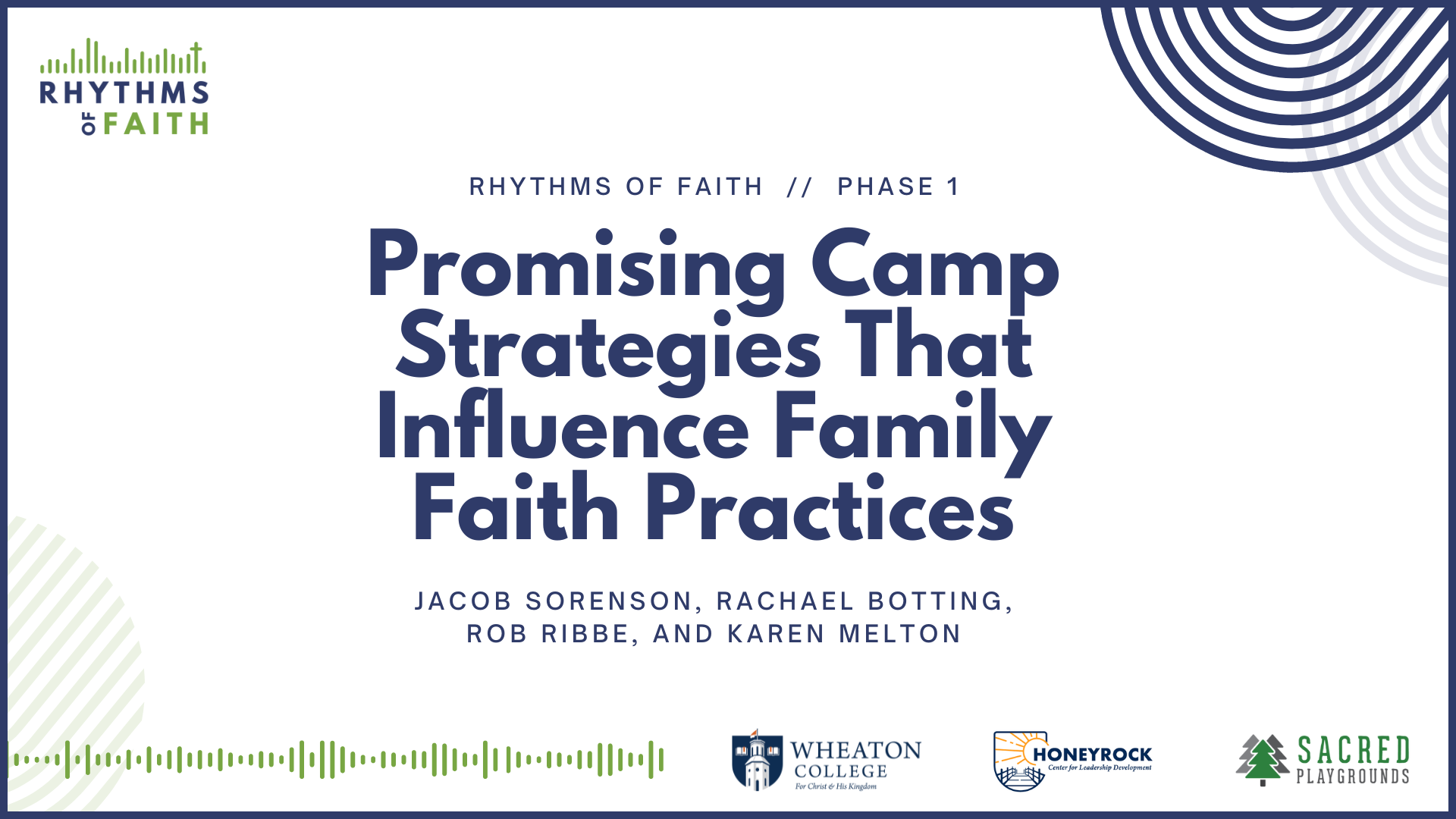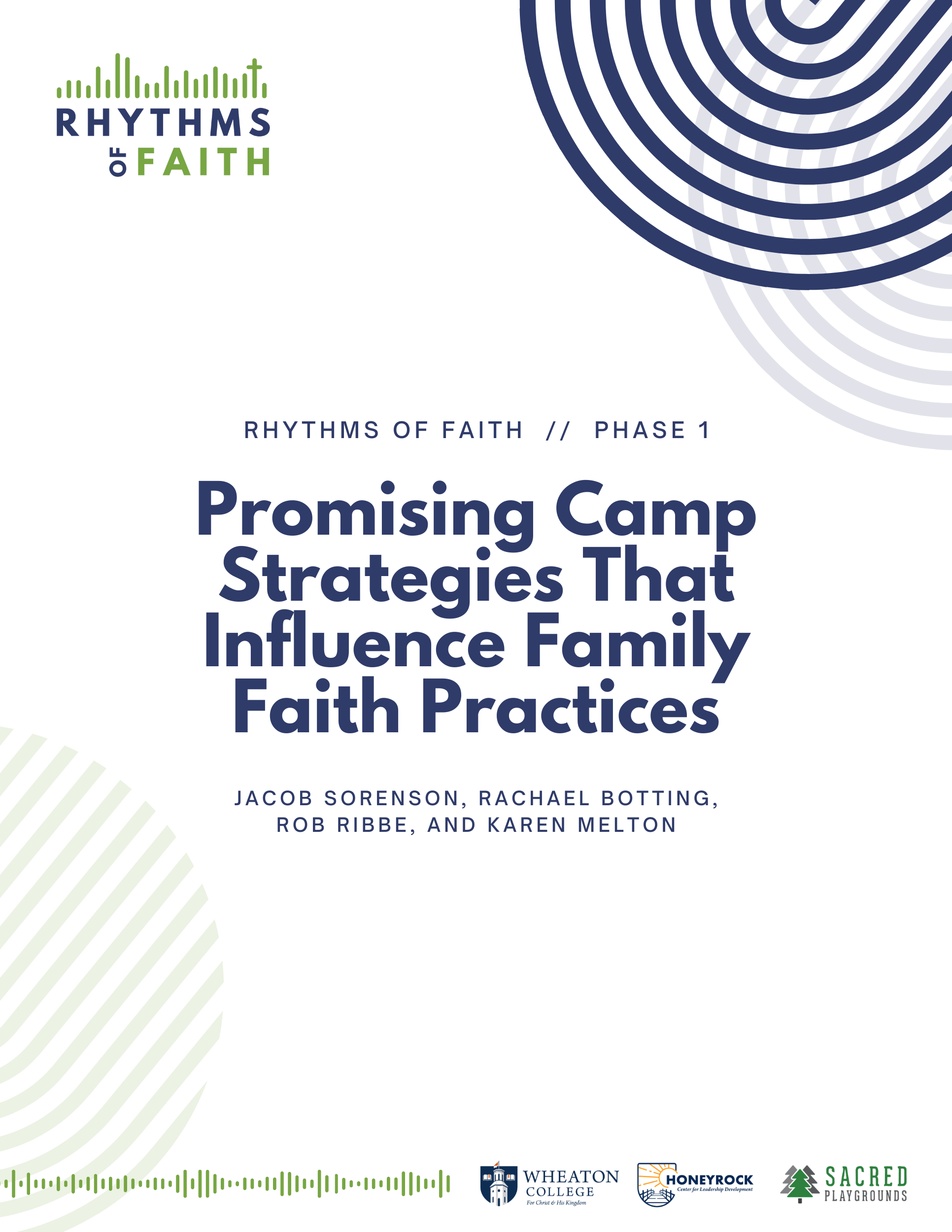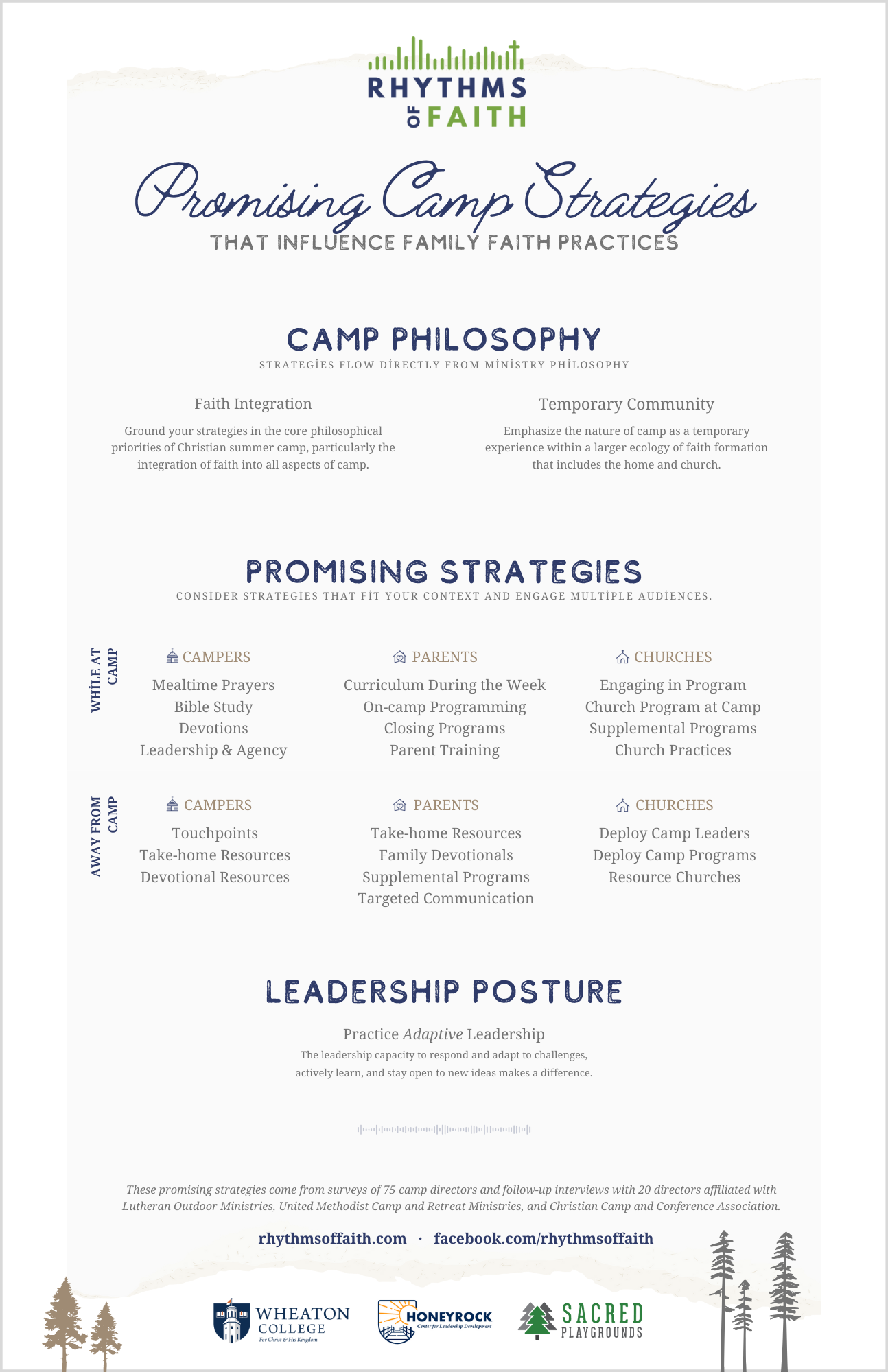Phase 1.2 Findings Report
The Rhythms of Faith Project seeks to empower parents and caregivers in family faith formation by leveraging the power of camp experiences to establish rhythms of faith through regular Christian practices. Phase 1 of the project sought to answer the question, “What are the most promising strategies of overnight Christian summer camps to influence faith practices in the home?” Seeking to answer this question, the research team gathered survey responses from 75 camp leaders from the networks participating in the study: United Methodist Camp and Retreat Ministries (UMCRM – 12 responses), Lutheran Outdoor Ministries (LOM – 27), and Christian Camp and Conference Association (CCCA – 36). In phase 1.2, researchers selected 20 leaders for follow-up interviews in order to further investigate the most promising strategies.
The major findings of the study were that 1) strategies for camp follow-up flowed directly from ministry philosophy and 2) the most promising strategies were contextual and engaged 3 key audiences: campers, parents/caregivers, and churches. The findings made clear that Christian summer camps were seeking to influence faith beyond camp, engaging strategies to ensure that camp was only part of a young person’s faith journey. However, the focus on faith formation in the home was a recent change or a new concept to many of the respondents, suggesting an ongoing paradigm shift in the understanding of the purpose and scope of camping ministry. Even while embodying a philosophy focused on impacting faith formation in the home, many camps adopted strategies focused on campers, while few were making direct connections with impacting families through parents and caregivers. Camps generally adopted the strategies piecemeal, with only a single camp in our sample exhibiting robust strategies covering each of our themes and audiences.
Our analysis resulted in six themes, outlined in this report as “promising strategies.” Two of these strategies relate to camp philosophy, one each to the three key audiences identified in the study, and the final one to camp leadership.



